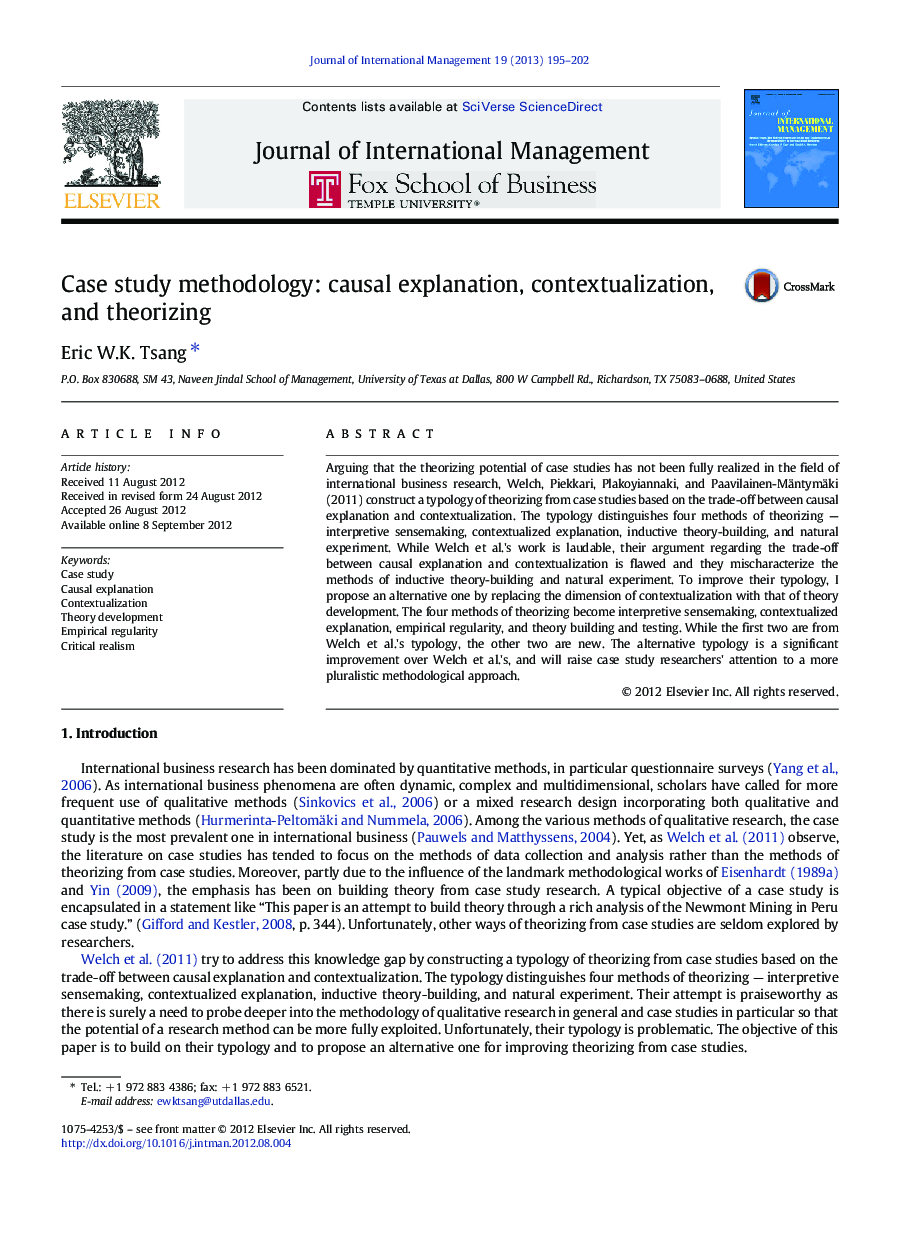| Article ID | Journal | Published Year | Pages | File Type |
|---|---|---|---|---|
| 1020356 | Journal of International Management | 2013 | 8 Pages |
Arguing that the theorizing potential of case studies has not been fully realized in the field of international business research, Welch, Piekkari, Plakoyiannaki, and Paavilainen-Mäntymäki (2011) construct a typology of theorizing from case studies based on the trade-off between causal explanation and contextualization. The typology distinguishes four methods of theorizing — interpretive sensemaking, contextualized explanation, inductive theory-building, and natural experiment. While Welch et al.'s work is laudable, their argument regarding the trade-off between causal explanation and contextualization is flawed and they mischaracterize the methods of inductive theory-building and natural experiment. To improve their typology, I propose an alternative one by replacing the dimension of contextualization with that of theory development. The four methods of theorizing become interpretive sensemaking, contextualized explanation, empirical regularity, and theory building and testing. While the first two are from Welch et al.'s typology, the other two are new. The alternative typology is a significant improvement over Welch et al.'s, and will raise case study researchers' attention to a more pluralistic methodological approach.
